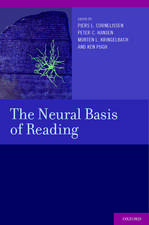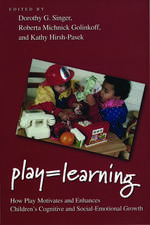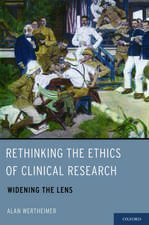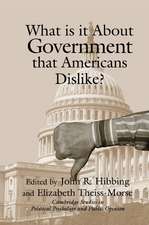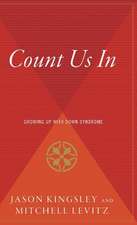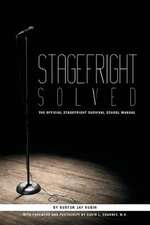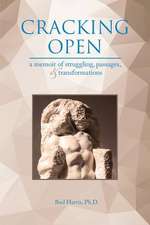The Securitarian Personality: What Really Motivates Trump's Base and Why It Matters for the Post-Trump Era
Autor John R. Hibbingen Limba Engleză Paperback – 27 feb 2023
| Toate formatele și edițiile | Preț | Express |
|---|---|---|
| Paperback (1) | 122.81 lei 10-16 zile | +33.22 lei 7-13 zile |
| Oxford University Press – 27 feb 2023 | 122.81 lei 10-16 zile | +33.22 lei 7-13 zile |
| Hardback (1) | 270.54 lei 10-16 zile | |
| Oxford University Press – 26 noi 2020 | 270.54 lei 10-16 zile |
Preț: 122.81 lei
Preț vechi: 139.99 lei
-12% Nou
Puncte Express: 184
Preț estimativ în valută:
23.50€ • 24.45$ • 19.40£
23.50€ • 24.45$ • 19.40£
Carte disponibilă
Livrare economică 11-17 martie
Livrare express 08-14 martie pentru 43.21 lei
Preluare comenzi: 021 569.72.76
Specificații
ISBN-13: 9780197649787
ISBN-10: 0197649785
Pagini: 304
Ilustrații: 17 b/w line drawings; 30 tables
Dimensiuni: 225 x 145 x 21 mm
Greutate: 0.42 kg
Editura: Oxford University Press
Colecția OUP USA
Locul publicării:New York, United States
ISBN-10: 0197649785
Pagini: 304
Ilustrații: 17 b/w line drawings; 30 tables
Dimensiuni: 225 x 145 x 21 mm
Greutate: 0.42 kg
Editura: Oxford University Press
Colecția OUP USA
Locul publicării:New York, United States
Recenzii
[T]his is an insightful psychological profile of the voters Trump is counting on in 2020.
An illuminating look at the drivers of illiberal nativism - and of support for its chief modern exponent.
Trump enthusiasts are not who you think they are. In this smart, engaging psychological exploration, Hibbing punctures some popular stereotypes, shows us what really motivates them, and explains why they will be around long after President Trump exits the stage.
For years, John Hibbing has been one of the world's most fearless, creative, and adventurous political scientists, readily embracing and incorporating new discoveries in psychology, neuroscience, and behavioral genetics. He needs all of that and more to understand the dedicated, fervent Trump supporter. Hibbing's analysis — based on extensive interviews, participant observation, and public opinion polls — is extremely insightful and intuitively convincing. It is an outstanding, thought-provoking work of interdisciplinary scholarship.
Foundational work on the psychology of politics tests what makes Trump venerators psychologically unique. Unlike prior accounts, Hibbing puts aside theories of economic bitterness, feelings of fear, and authoritarianism. Drawing instead on evolutionary and political psychology, Hibbing combines insights from interviews and a unique survey to suggest that Trump venerators are continuing the evolutionary-long tradition of desiring security from outsiders. The first step to reducing the risks they pose to democratic processes, Hibbing suggests, is to understand that many of our fellow citizens have a fundamentally different and securitarian approach towards perceived outsiders.
John Hibbing set out to understand the motivations not of Trump voters, but of his fire-breathing base. In doing so, he has produced an original, nuanced, fair-minded, and fascinating empirical account of what he labels the 'securitarian personality.' Hibbing argues that securitarians define one side of the most fundamental divide in modern societies. They will be a disruptive force in our politics well after Trump, one that must be understood and reckoned with. This important book makes compelling reading both for social scientists and Trump's strongest supporters and opponents.
An illuminating look at the drivers of illiberal nativism - and of support for its chief modern exponent.
Trump enthusiasts are not who you think they are. In this smart, engaging psychological exploration, Hibbing punctures some popular stereotypes, shows us what really motivates them, and explains why they will be around long after President Trump exits the stage.
For years, John Hibbing has been one of the world's most fearless, creative, and adventurous political scientists, readily embracing and incorporating new discoveries in psychology, neuroscience, and behavioral genetics. He needs all of that and more to understand the dedicated, fervent Trump supporter. Hibbing's analysis — based on extensive interviews, participant observation, and public opinion polls — is extremely insightful and intuitively convincing. It is an outstanding, thought-provoking work of interdisciplinary scholarship.
Foundational work on the psychology of politics tests what makes Trump venerators psychologically unique. Unlike prior accounts, Hibbing puts aside theories of economic bitterness, feelings of fear, and authoritarianism. Drawing instead on evolutionary and political psychology, Hibbing combines insights from interviews and a unique survey to suggest that Trump venerators are continuing the evolutionary-long tradition of desiring security from outsiders. The first step to reducing the risks they pose to democratic processes, Hibbing suggests, is to understand that many of our fellow citizens have a fundamentally different and securitarian approach towards perceived outsiders.
John Hibbing set out to understand the motivations not of Trump voters, but of his fire-breathing base. In doing so, he has produced an original, nuanced, fair-minded, and fascinating empirical account of what he labels the 'securitarian personality.' Hibbing argues that securitarians define one side of the most fundamental divide in modern societies. They will be a disruptive force in our politics well after Trump, one that must be understood and reckoned with. This important book makes compelling reading both for social scientists and Trump's strongest supporters and opponents.
Notă biografică
John R. Hibbing, Foundation Regents Professor of Political Science, University of Nebraska-Lincoln.John R. Hibbing is the Foundation Regents Professor of Political Science at the University of Nebraska-Lincoln. His previous works include Stealth Democracy and Predisposed: Liberals, Conservatives, and the Biology of Political Differences. He has received nine National Science Foundation grants, been named a NATO Fellow in Science and a Guggenheim Fellow, and appeared on Star Talk, NPR's Hidden Brain, and The Daily Show.




